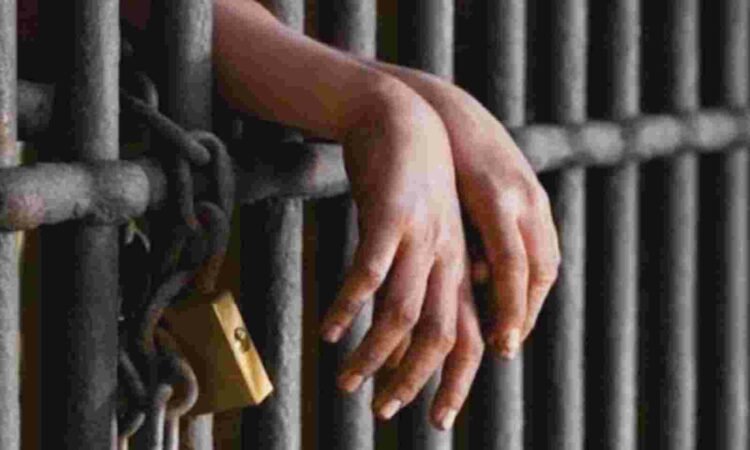Prison inmates and accused in police stations are also given the basic right to life under Article 21 of the Constitution and these rights should be protected
By Vikas Meshram
Despite the court’s directive that CCTV cameras should be installed at important places in all prisons and police stations across the country and that prisoners and accused should not be tortured, the pattern of deaths in custody continues unabated. About five people die every day in police and judicial custody due to the harsh treatment of prisoners. These facts are enough to raise questions about the seriousness of the police and prison administration towards the human rights of the police station and prison inmates.
Prison inmates and accused in police stations are also given the basic right to life under Article 21 of the Constitution and these rights should be protected, the court has repeatedly said. Because the human rights of such persons should not be violated.
The court ruled in 2015 that under section 30 of the Protection of Human Rights Act, 1993, state governments would set up human rights courts in their own right. The court had ordered the installation of CCTV cameras in all prisons and police stations to record incidents of human rights violations of prisoners, but it often happens that the CCTVs installed at the scene of death in custody do not work. Not only that, but often in the case of death in custody, senior officers try to hide it instead of taking immediate drastic action. However, when the court intervened, the senior police officers rushed to the spot and took action against the police station in charge and other police personnel involved in the case. Sometimes the court has to hand over the investigation of death in police custody to the CBI.
According to the information received, 236 cases of torture in custody were reported in 2020-21, while their number was 411 in 2019-20 and 542 in 2018-19. A report by the National Crime Records Bureau also states that 1,004 people have died in police custody in the last 10 years.
The process of death of the inmates is still going on from Delhi’s high-security Tihar Jail to the police station. Recently, Ankit Gurjar, a prisoner lodged in Tihar Jail, was allegedly beaten to death by jail authorities and a Dalit was reportedly killed in a police cell in Agra. Delhi High Court has handed over the case of the alleged murder of Ankit Gurjar in Tihar Jail to CBI. In the incident, it was claimed that the CCTV installed in the jail was not working during Ankit’s alleged beating with another inmate. In this case, Ankit is accused of beating him to death by the jail authorities. That is why the High Court has clearly stated in its order that no matter how high the walls of jail are, the foundation of jail is governed by law as the rights of prisoners are enshrined in the Indian Constitution.
Take the case of Dalit Arun Valmiki who died in police custody in Agra on the night of October 19. The youth was arrested on October 18 for stealing Rs 25 lakh from the Jagdishpur police station. Due to the strict action of the government, it could not become a political issue.
Earlier in September, the Allahabad High Court had directed the CBI to probe the death of 24-year-old priest Krishna Yadav in police custody in Jaunpur. The priest was arrested on the night of February 11, 2021, and died the next day in police custody. The High Court seems at first sight that the accused police committed the crime, but the higher authorities tried to cover it up.
Father-son p. Jayaraj and his son J.J. The same was true of Benix’s death. As the case progressed, its investigation was handed over to the CBI, which on September 26 filed a charge sheet against nine policemen, including murder and other offenses. According to an NGO, about 63 percent of the accused arrested by the police in our country die before they are brought before the magistrates. Considering this fact, the question arises as to how the cured accused died within 24 hours of his arrival in police custody. The Home Ministry told Parliament on March 16, 2021, that 1685 people died in judicial custody and 86 in police custody in the country till February 28, 2020-21.
Similarly, in 2019-20, 1584 people died in judicial custody and 112 people in police custody, while in 2018-19, 1796 people died in judicial custody and 136 people died in police custody. The Supreme Court ruled on 18 December 1996 and again on 24 July 2015 to curb the rising incidence of assaults and deaths of detainees. However, the court directives are not being implemented effectively and the death of people in custody is a matter of concern.
The Author

Vikas Parasram Meshram is a social worker and activities working towards the rights of tribal and marginalized communities.







